Young Women with Stage 4 Cancers After COVID-19 mRNA Vaccination. Solution? Screening Age For Great Cancer Now Dropped From 50 to 40
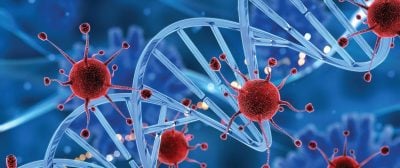
All Global Research articles can be read in 51 languages by activating the Translate Website button below the author’s name (only available in desktop version).
To receive Global Research’s Daily Newsletter (selected articles), click here.
Click the share button above to email/forward this article to your friends and colleagues. Follow us on Instagram and Twitter and subscribe to our Telegram Channel. Feel free to repost and share widely Global Research articles.
Global Research Wants to Hear From You!
***
Apr. 30, 2024 – Breast cancer screening age officially lowered from 50 to 40, amid worrying rise of disease in young women
The age that women should begin regular breast cancer screening has dropped from 50 to 40, according to new official guidance from the US’ chief disease prevention body.
The US Preventive Services Task force (USPSTF) finalized Tuesday the draft recommendation from last year, amid rising cases of the disease in women under 50.
Recommendations from the group are almost always adopted as best practice by physicians across the US.
For instance, the same agency lowered the minimum colonoscopy screening age from 50 to 45 last year.
The ruling reverses longstanding guidance recommending women start regular screening, done through a specialist x-ray called a mammogram, at age 50.
Dr John Wong, USPSTF vice president, cited a rise in breast cancer cases in women under 50, which recent research shows has increased by three percent per year.
This includes actress Olivia Munn, who was diagnosed with the disease at age 43 after an initial test missed her tumor.
‘There is clear evidence that starting screening every other year at age 40 provides sufficient benefit that we should recommend it for all women in this country to help them live longer and have a better quality of life,’ Dr Wong, a primary care physician at Tufts Medical Center in Massachusetts, said.
USPSTF has previously said an extra 20 million women in their 40s would benefit from a mammogram every two years.
In a study published last year in JAMA Network Open, researchers found that the number of women getting screened for breast cancer has declined since the Covid pandemic began.
Looking through 1.6 million breast cancer screening records, they found that screenings dropped by 14 percent in the first year of the pandemic.
*
Apr. 30, 2024 – New York Times – In Reversal, Expert Panel Recommends Breast Cancer Screening at 40
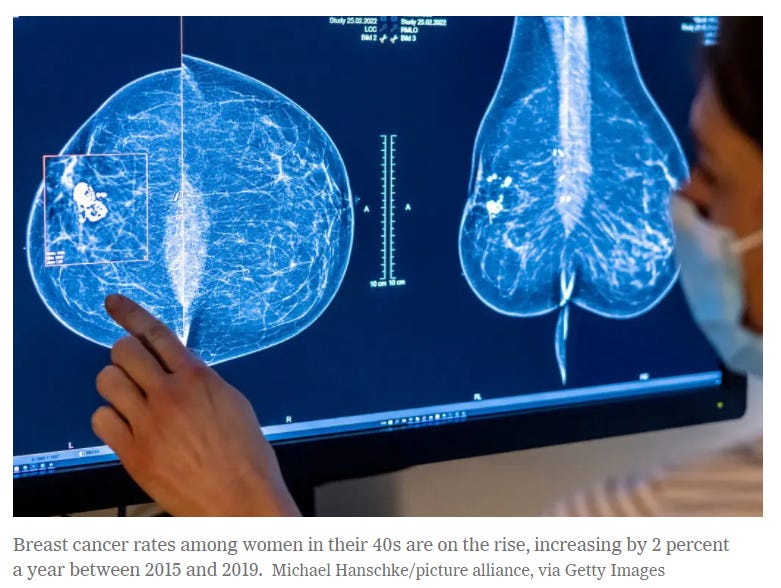
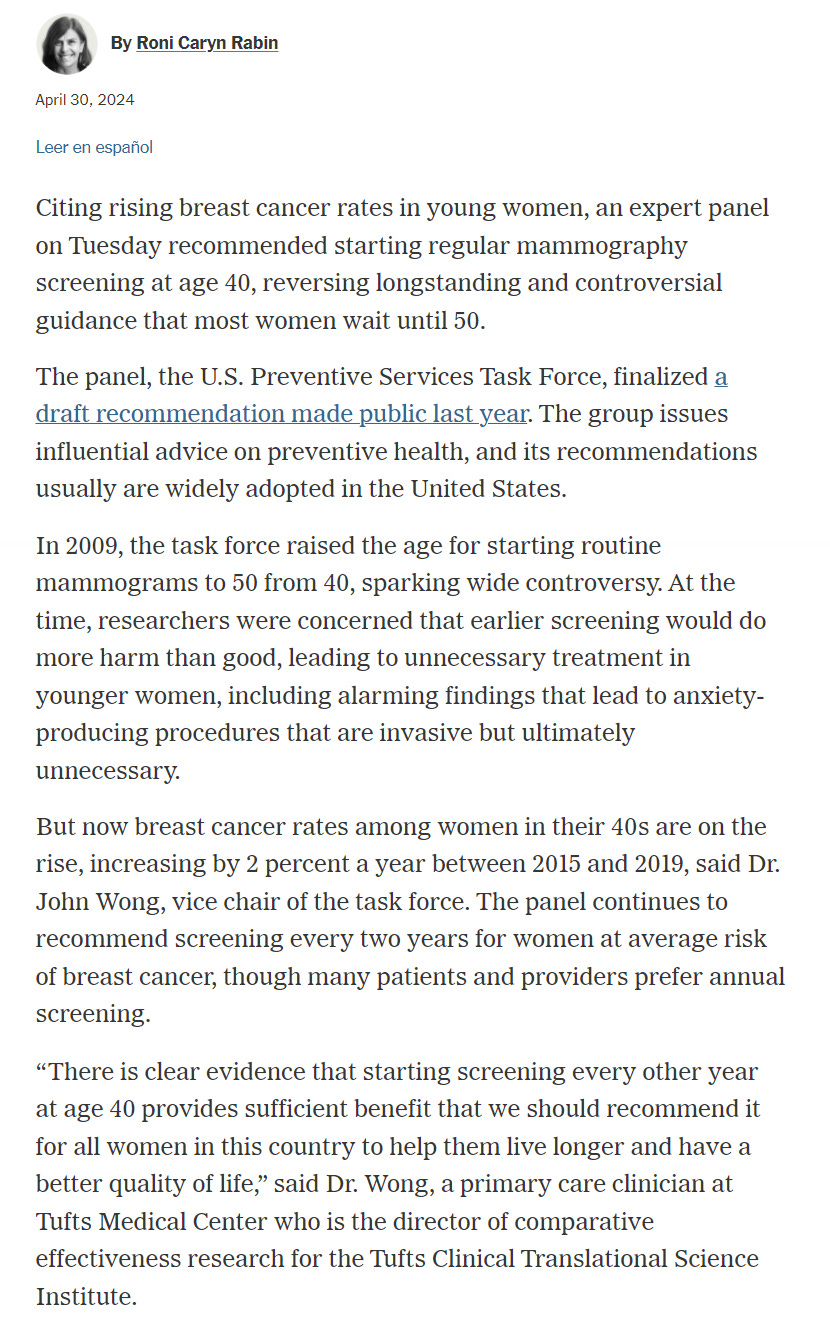
April 26, 2024 – CANADA (CTV News)
Breast cancer rates are rising in Canada among women in their 20s, 30s and 40s, according to a research by the University of Ottawa (uOttawa).
The study reviewed breast cancer cases over 35 years to shed light on trends in breast cancer detection in Canada, said the university in a news release on Friday.
It finds that the risk increases with age:
- Women in their 20s: There were 3.9 cases per 100,000 people between 1984 and 1988, compared to 5.7 cases per 100,000 between 2015 and 2019 for a 45.5 per cent increase.
- Women in their 30s: There were 37.7 cases per 100,000 people between 1984 and 1988, compared to 42.4 cases per 100,000 between 2015 and 2019 for a 12.5 per cent increase.
- Women in their 40s: There were 127.8 cases per 100,000 people between 1984 and 1988, compared to 139.4 cases per 100,000 between 2015 and 2019 for a 9.1 per cent increase.
The study is led by Dr. Jean Seely – Head of Breast Imaging at The Ottawa Hospital and professor in the Department of Radiology at uOttawa. Dr. Seely says the rising rates among younger women is alarming, noting that women in their 20s and 30s are not regularly screened for breast cancer.
“Breast cancer in younger women tends to be diagnosed at later stages and is often more aggressive,” said Dr. Seely.
Dr. Seely suggests targeting younger women in breast cancer awareness campaigns and screening programs.
“We’re calling for increased awareness among health-care professionals and the public regarding the rising incidence of breast cancer in younger women,” said Dr. Seely.
“We need to adapt our strategies and policies to reflect these changing trends, ensuring that all women, regardless of age, have access to the information and resources they need to detect and combat this disease.”
The study also says more research is needed to understand the root cause of rising breast cancer rates among younger women.
Chelsea Bland was diagnosed with breast cancer when she was 28.
Though Bland is two years cancer free, she remains on hormone therapy today. Her experience prompted her to establish a local group to offer support for women between the ages of 28 and 40.
“I hope that by bringing awareness to this study it makes people think twice about saying that being in your 20s, 30s and 40s is too young to have breast cancer. In my support group, I have heard the same story over and over again,” Bland said.
“Young women are not being taken seriously after they find a lump because they are told they are too young for breast cancer. This has ultimately led to delays in being diagnosed and being diagnosed at a more advanced stage. We are not too young for this and this is happening to women who do not have any high-risk genetic markers for breast cancer, myself included.”
The study is published in the Canadian Association of Radiologists Journal.
*
Recent turbo breast cancer cases in women under age 40 I’ve reported (16 cases):
2024 Jan – Philippines – 27 year old Janah Solleza has been diagnosed with cancer. She made a video about getting COVID-19 vaccinated.
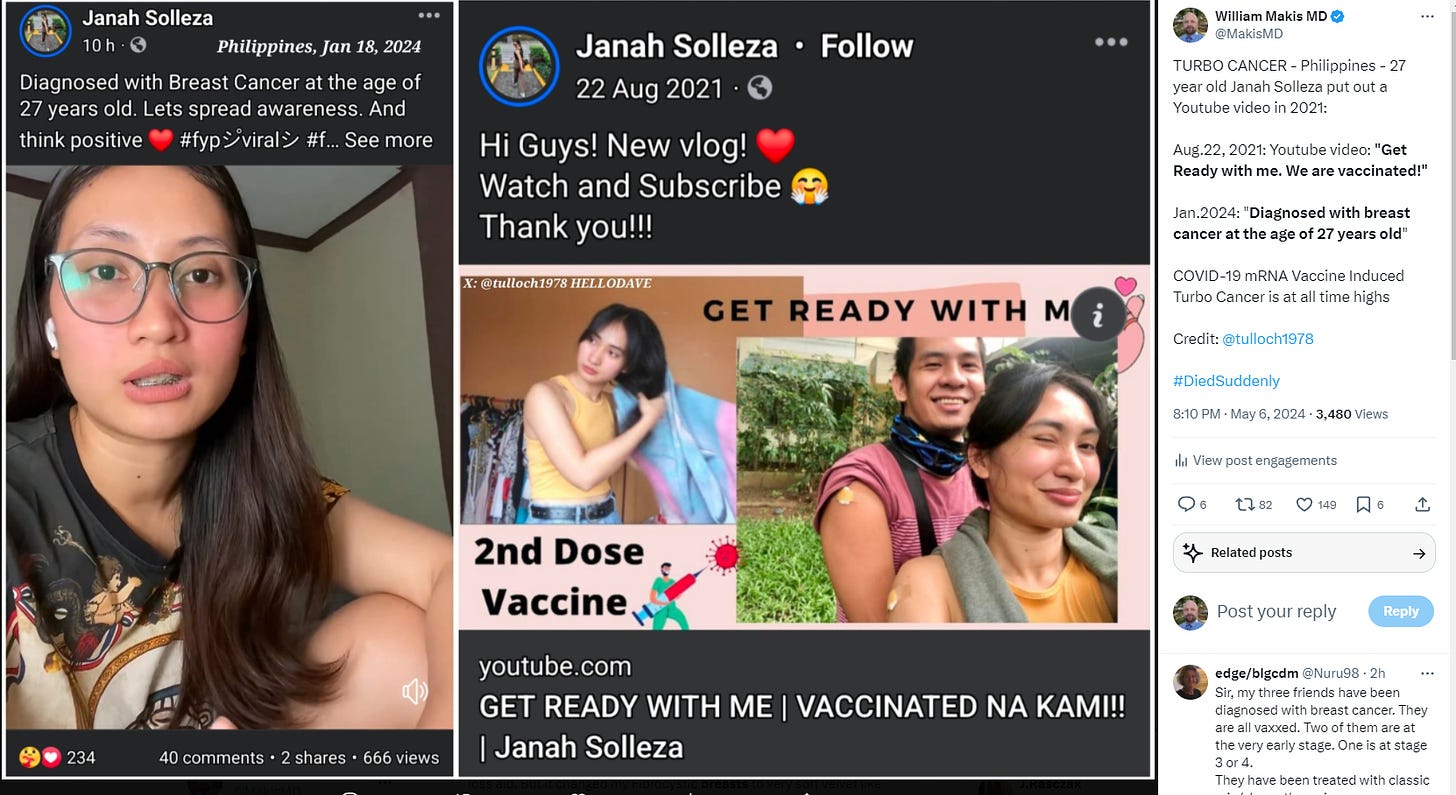
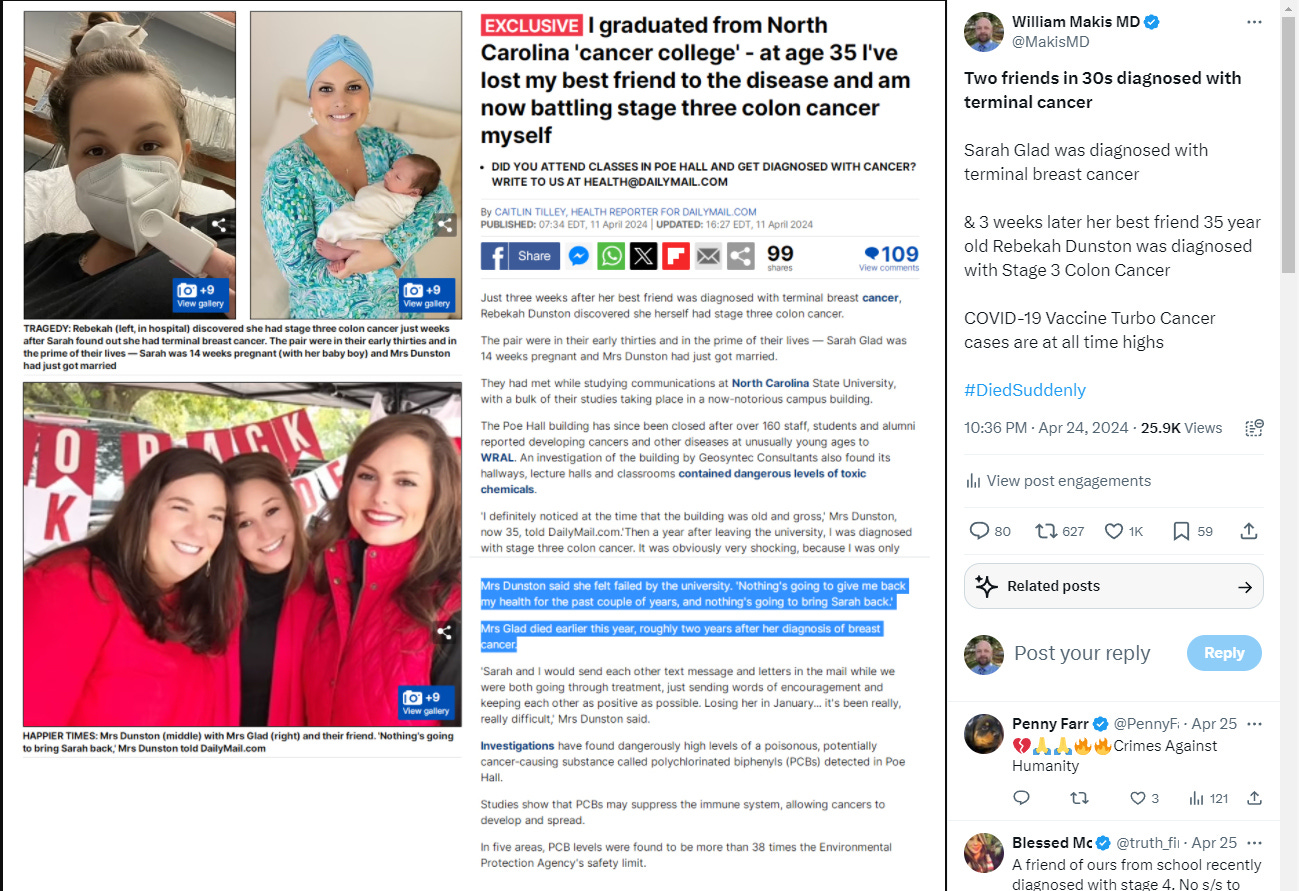
Click here to read the full article.
*
Note to readers: Please click the share button above. Follow us on Instagram and Twitter and subscribe to our Telegram Channel. Feel free to repost and share widely Global Research articles.
Dr. William Makis is a Canadian physician with expertise in Radiology, Oncology and Immunology. Governor General’s Medal, University of Toronto Scholar. Author of 100+ peer-reviewed medical publications.
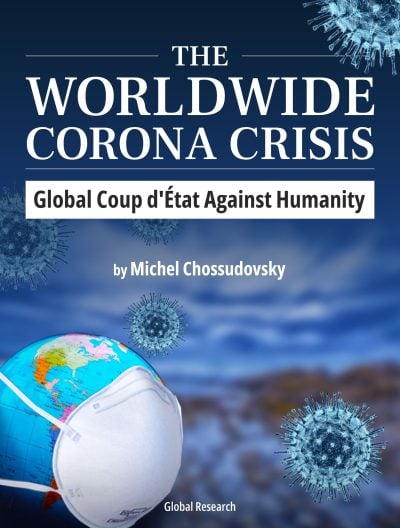 The Worldwide Corona Crisis, Global Coup d’Etat Against Humanity
The Worldwide Corona Crisis, Global Coup d’Etat Against Humanity
by Michel Chossudovsky
Michel Chossudovsky reviews in detail how this insidious project “destroys people’s lives”. He provides a comprehensive analysis of everything you need to know about the “pandemic” — from the medical dimensions to the economic and social repercussions, political underpinnings, and mental and psychological impacts.
“My objective as an author is to inform people worldwide and refute the official narrative which has been used as a justification to destabilize the economic and social fabric of entire countries, followed by the imposition of the “deadly” COVID-19 “vaccine”. This crisis affects humanity in its entirety: almost 8 billion people. We stand in solidarity with our fellow human beings and our children worldwide. Truth is a powerful instrument.”
Reviews
This is an in-depth resource of great interest if it is the wider perspective you are motivated to understand a little better, the author is very knowledgeable about geopolitics and this comes out in the way Covid is contextualized. —Dr. Mike Yeadon
In this war against humanity in which we find ourselves, in this singular, irregular and massive assault against liberty and the goodness of people, Chossudovsky’s book is a rock upon which to sustain our fight. –Dr. Emanuel Garcia
In fifteen concise science-based chapters, Michel traces the false covid pandemic, explaining how a PCR test, producing up to 97% proven false positives, combined with a relentless 24/7 fear campaign, was able to create a worldwide panic-laden “plandemic”; that this plandemic would never have been possible without the infamous DNA-modifying Polymerase Chain Reaction test – which to this day is being pushed on a majority of innocent people who have no clue. His conclusions are evidenced by renown scientists. —Peter Koenig
Professor Chossudovsky exposes the truth that “there is no causal relationship between the virus and economic variables.” In other words, it was not COVID-19 but, rather, the deliberate implementation of the illogical, scientifically baseless lockdowns that caused the shutdown of the global economy. –David Skripac
A reading of Chossudovsky’s book provides a comprehensive lesson in how there is a global coup d’état under way called “The Great Reset” that if not resisted and defeated by freedom loving people everywhere will result in a dystopian future not yet imagined. Pass on this free gift from Professor Chossudovsky before it’s too late. You will not find so much valuable information and analysis in one place. –Edward Curtin
ISBN: 978-0-9879389-3-0, Year: 2022, PDF Ebook, Pages: 164, 15 Chapters
Price: $11.50 FREE COPY! Click here (docsend) and download.
You may also access the online version of the e-Book by clicking here.
We encourage you to support the eBook project by making a donation through Global Research’s DonorBox “Worldwide Corona Crisis” Campaign Page.

